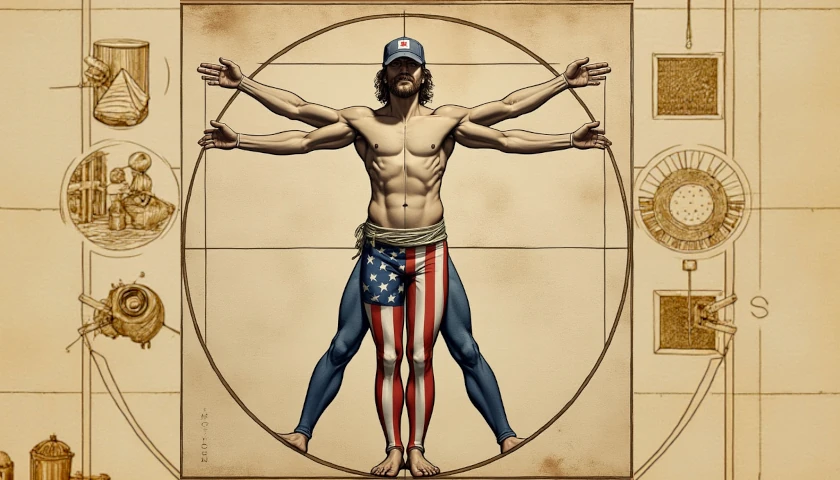We now live in a world where borders apparently don’t matter. The activities of corporations operating in multiple countries simultaneously, as well as travel being readily accessible, and networking possibilities of the Internet and social media render national borders somewhat less significant. Then we need to ask the question: Is culture still relevant?
Yet, William Bennett, a rather brilliant man and former US Secretary of Education, made an observation last year that politics and public engagement in social issues can make more of a difference than he once thought. Bennett is rather philosophical, and his opinion still carries much weight among policymakers and media.
To take it a step further, examine the words of Richard Shweder: “I believe that all the good things in life can’t be simultaneously maximized. I believe that when it comes to implementing true values there are always trade-offs, which is why there are different traditions of values (i.e., cultures) and why no one cultural tradition has ever been able to honor everything that is good.” People fail to consider there is no perfect society despite our historical attempts at creating it.
Debates on culture also include our conflicting orientation on matters such as secular versus religious, our concept of freedom along with our trust or distrust in the leadership of those who govern us. Culture impacts the success or failure of a certain aspect of society, such as health, education, institutions, justice, national security as well as other policy issues.
Thomas Jefferson wrote of the self-evident truth that “all men are created equal; endowed by their creator with the right to life, liberty and the pursuit of happiness.” This endures as the powerful philosophical and moral foundation of the American republic itself.
On the subject of freedom in culture, President Franklin Delano Roosevelt in his State of the Union Address he delivered on January 6, 1941, stated that American’s looked forward to a world founded upon four essential human freedoms. Roosevelt may not recognize the current age, but his points are worth a reminder.
- The first is freedom of speech and expression—everywhere in the world.
- The second is freedom of every person to worship God in his own way—everywhere in the world.
- The third is freedom from want—which, translated into world terms, means economic understandings which will secure to every nation a healthy peacetime life for its inhabitants—everywhere in the world.
- The fourth is freedom from fear—which, translated into world terms, means a world-wide reduction of armaments to such a point and in such a thorough fashion that no nation will be in a position to commit an act of physical aggression against any neighbor—anywhere in the world.
Samuel Huntington, a political scientist at Harvard University, suggested that there are a set of eight cultural “civilizations” who are a major influence on current culture–Western, Eastern Orthodox, Latin American, Islamic, Japanese, Chinese, Hindu, and African. This explains our present-day struggles across the nation and the world, as well as repeated conflicts between countries and cultures.
Another major theme Huntington puts forward was that we have moved from a bi-polar competition between communism and democracy/capitalism to a geopolitical battle fostered by a multi-polar world of competing civilizations. In regards to immigration in our own country, that is manifested by the failure of people to assimilate into American society and culture. He argues that could eventually change our nation into one where multiple languages, multiple cultures, create multiple peoples. This is also a direct conflict with the concept of the founding principles of our nation.
Huntington wrote: “September 11 gave a major boost to the supporters of America as one people with a common culture. Yet the war to deconstruct our culture has not ended. It remains unresolved today whether America will be a nation of individuals with equal rights sharing a common culture, or an association of racial, ethnic, and cultural groups held together by hopes for material gains.”
Orwellian logic from which the principle that “All animals are equal” gives birth to the transformative postscript: “but some animals are more equal than others” when we are only focused on material gains. Equal rights are a common goal that culture should embrace. As we consider culture, we have to see how this becomes applicable to public education, and what role should public schools plays in building a common culture, if any? The time for discussion is now.
The United States is a diverse country, racially and ethnically, as well as in how people choose to organize themselves socially and politically. It can be argued that our public schools are integrally situated to communicate society’s values, such as individual responsibility, patriotism, integrity, objectivity, justice, respect for others, being on time, doing a good job, working well with others, being a good citizen, and exercising democracy in government and other interactions. Americans have thus far kept our republic, and created it to be resilient and strong. However, the United States will remain free only with relentless vigilance and public engagement, which must be transmitted in our culture.
Certainly we can do more to improve opportunities for all students. Public education has done an excellent job of positioning our state, nation and students for success. Our ethnic identity and culture is rapidly changing. The question we must ask ourselves, is that always for the better? If we are not careful, we may risk losing what made America the envy of the world and a continual place of liberty and opportunity for our citizens. Educators must be the ones that provide hope, opportunity, and optimism for the subsequent generations. In the end, history will prove that culture matters.
##
JC Bowman is the Executive Director of Professional Educators of Tennessee, a non-partisan teacher association headquartered in Nashville, Tennessee. Permission to reprint in whole or in part is hereby granted, provided that the author and the association are properly cited. Follow him on social media via Twitter at @jcbowman.






Wolf Woman makes some very good points. I could add but I will simply say “YES” culture matters. And multi-culturism is not compatible with the culture that made America great.
Our nation has already changed. Many young people feel little or no patriotism for this country or sympathy for the ideas the U.S. was founded on. The Marxist materialistic doctrine of rich vs. poor based on envy is the common theme around the world. Moral and ethical values are seen as regressive and old fashioned while there are no limits, no rules for progressive culture of “anything goes.”
Our freedom of speech and expression is being curtailed somewhere in the country as I type these words. Why? because someone’s feelings could be hurt.
Universities are so politically correct that they are afraid to hear any ideas that conflict with their ideological dogma. They teach that feelings trump facts and the collective is more important than the individual’s rights. If the individual has to give up rights to the collective, then we might as well tear up the Declaration of Independence, the Constitution and Bill of Rights and declare this experiment in governance a failure.